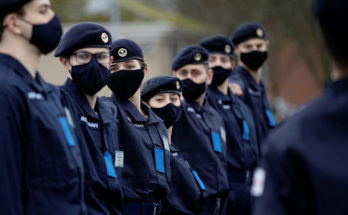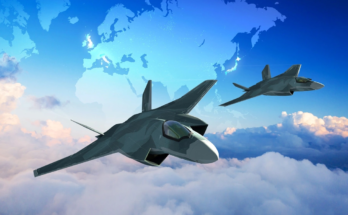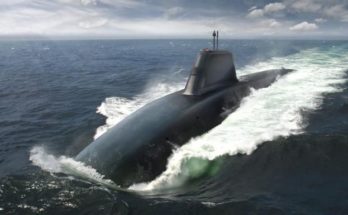Speaker: Admiral Sir Tony Radakin, Chief of the Defence Staff, U.K. Ministry of Defence
Moderator: Robert Fox, Defence Editor, Evening Standard
Adm. Sir Tony Radakin, Chief of the Defence Staff at the U.K. Ministry of Defence, was the final keynote speaker on Thursday at DSEI. In an interview with the Evening Standard’s Robert Fox, the admiral discussed the U.K.’s current role in and view of global security challenges.
Mr. Fox began by asking about the current conflict in Ukraine, a situation in which the United Kingdom and its allies have been intimately involved. Admiral Radakin began curiously, dodging entirely a question on the recent major Ukrainian attack on a Russian dock in Sevastopol that media have speculated involved British-supplied Storm Shadow missiles. Rather than refuse outright to answer the question or address it in a limited fashion, the admiral chose to move past it without a word, instead offering broad compliments to Ukrainian martial abilities while briefly mentioning the value of international support, clearly preferring not to comment.
The question was made more pressing by recent BBC revelations that a Russian Su-27 jet had deliberately tried to down a British surveillance plane over the Black Sea with a missile last September, contradicting previous claims that the missiles had deployed accidentally. When asked how the U.K. would respond had the missile hit, Admiral Radakin declined to explore the hypothetical. He instead offered only that an incident had occurred between a Rivet Joint surveillance plane and a Russian Su-27 that led to a pause in Royal Air Force (RAF) sorties over the Black Sea, which resumed after conversations with Russia.
Admiral Radakin was more open as the conversation moved away from the battlefront. He outlined that while the U.K. views its responsibilities as primarily in the Euro-Atlantic theater, it is still an international power with growing security commitments to the Indo-Pacific region. With a string of bases and close partners in the region, the British are prepared to play their part in the area. Lauding the AUKUS agreement as “extraordinary,” the admiral spoke of the value of the technological cooperation side of the deal, which is poised to help the three-nation body jointly develop cutting-edge technology like artificial intelligence (AI), quantum expertise, hypersonics and advanced undersea capabilities. With over half of the world’s population and 60 percent of its GDP, the Indo-Pacific theater remains an understandably large priority for the U.K. and its allies.
With an eye to the future, Admiral Radakin spoke of the importance of integrating new technology and promoting a culture and system of joint operation within the armed forces. The U.K. also looks to integrate lessons from Ukraine, including the impact of longer-range missiles, the value of heightened battlefield awareness, and the importance of unmanned assets. Concluding by waxing on the possibilities of a fleet made up of mostly uncrewed vessels and an air force primarily built of drones, Admiral Radakin offered an optimistic picture of the future for the U.K. and its allies, in which close collaboration and technical sophistication will provide a decisive advantage in the geopolitical struggles of tomorrow.
Tom Freebairn is a weapons analyst with Military Periscope covering naval affairs and maritime systems. He pursued an undergraduate degree in International Relations and Modern History, followed by a master's in Middle East, Caucasus, and Central Asia Security Studies from the University of St. Andrews. His master's thesis focused on the relationship between oil and separatist politics in Northern Iraq. Tom's interests include the politics of energy, ethnic separatism, the evolution of naval warfare, and classical history.




